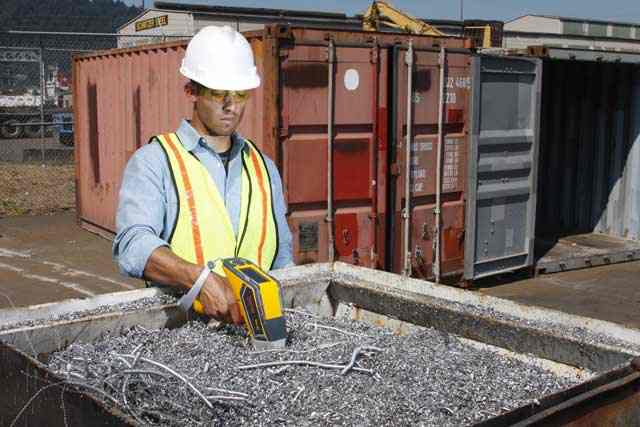
Ecomass non-toxic gamma and x-ray shielding materials help Thermo Fisher Scientific maintain market leadership by providing an eco-friendly solution to overcome the regulatory requirements of the worldwide marketplace
Challenge:
To meet the regulatory concerns of all the markets they serve and maintain market leadership, Thermo Fisher Scientific, the world’s leading producer of portable x-ray fluorescence (XRF) analyzers, sought an eco-friendly, injection moldable material to deliver a non-toxic, light weight solution for their portable NITON Analyzer product line. These analyzers can verify the composition of incoming materials, provide nondestructive alloy grade identification, offer RoHS compliance testing, assist with quality assurance of finished goods, and can classify scrap for rework or resale.
Designers gathered the following list of material requirements:
- Injection moldable thermoplastic
- RoHS compliant material
- Non-toxic constituents
- Lead-equivalent gamma and x-ray shielding
Moreover, the developed compound needed to be cost effective as compared to other non-toxic traditional x-ray shielding materials, such as tungsten heavy alloy, steel and aluminum.
The Ecomass Solution:
The Ecomass sales and technical team addressed these material challenges by developing Ecomass Compound 1050ZB92, a filled impact modified Nylon 12 able to shield x-ray and gamma radiation to the equivalency of lead, but without any toxic constituents. Like the rest of our product line, Ecomass Compound 1050ZB92 is a thermoplastic composite material that can be injection molded or compression molded to satisfy a variety of shielding applications. These materials do not contain lead, lead compounds, or any other materials considered hazardous or toxic by the U.S. EPA. The entire Ecomass product line is RoHS compliant.
Customer Feedback/Customer Comments/Hear from the Customer:
“We faced a serious design challenge of meeting the regulations for radiation safety and banned materials for all the countries we export to,” said Thermo Fisher engineer Paul Estabrooks. “Ecomass enabled us to employ an eco-friendly material in our shielding to comply with the requirements of all the markets we serve. Since the material lends itself to injection molding, we were able to minimize weight—essential for our handheld instruments.”